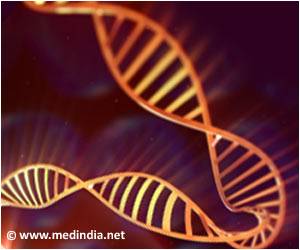Height is mostly determined by the information encoded in the human DNA - children from tall parents tend to be taller and those from short parents are shorter.

‘Height is mostly determined by the information encoded in the human DNA - children from tall parents tend to be taller and those from short parents are shorter.’





The genes affected by these genetic variations modulate, among other things, bone and cartilage development and growth hormone production and activation. Hundreds of DNA changes that influence height have already been identified, but these common DNA changes often influence height by less than 1 millimetre (mm). However, the study showed new DNA changes that are uncommon or rare led to differences in height of up to 2 centimetre (cm) -- over 10 times the average effect of previously discovered gene variants. The identified genes will also help in predicting a person's risk of developing certain growth disorders.
"There is also hope that we may one day be able to use this knowledge to develop a precision medicine approach for dealing with growth disorders," added Panos Deloukas Professor at Queen Mary University of London (QMUL).
For the study, published in the journal Nature, the team measured the presence of 250,000 genetic variations in the 700,000 participants. The researchers also identified several genes that may represent good therapeutic targets for growth problems often observed in children.
The variants also influence height by affecting the availability of growth factors in the blood, the researchers suggested. "The STC2 protein serves as a brake on human height, validating it as a potential drug target for short stature," explained Joel Hirschhorn from the Broad Institute in Massachusetts, US.
Advertisement















